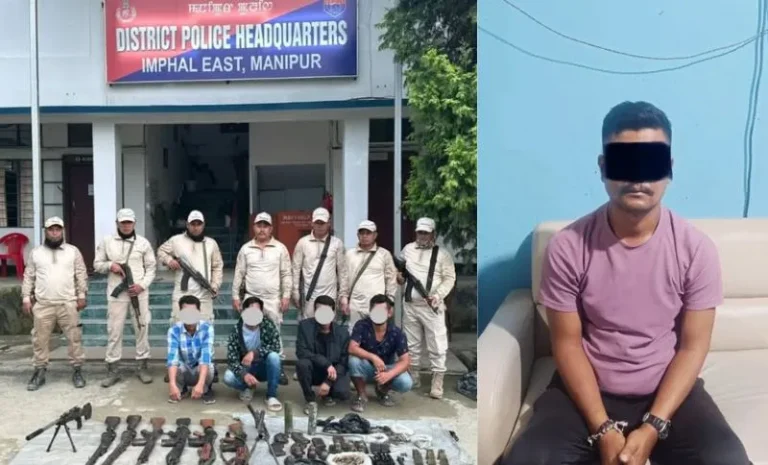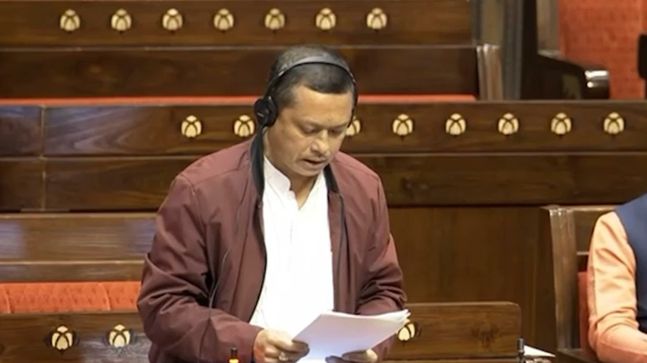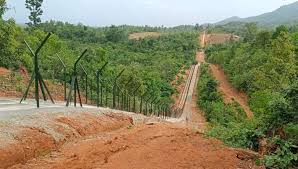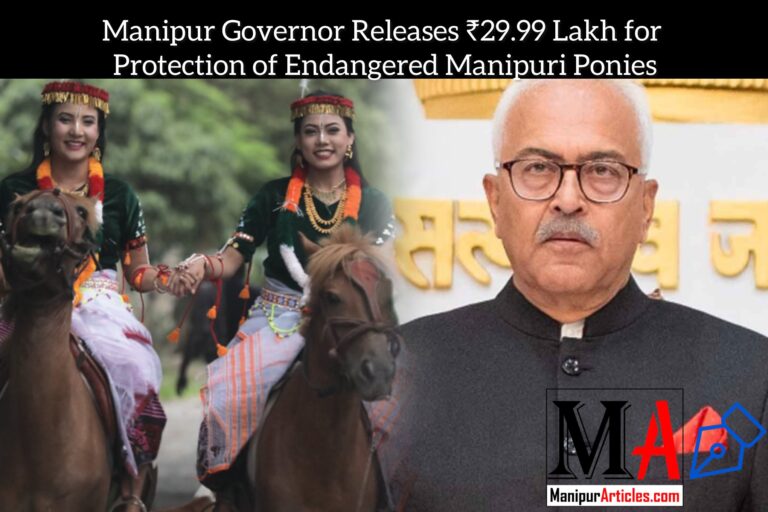If You Want Peace in Manipur, Listen to Its People: Gaurav Gogoi Slams PM Modi
Summary
In a fiery address that has captured the attention of many, Gaurav Gogoi has sharply criticized Prime Minister Narendra Modi, urging the government to truly listen to the voices of Manipur’s people if lasting peace is to be achieved. Speaking out amid escalating tensions and widespread public discontent, Gogoi emphasized that top-down policies without grassroots input are doomed to fail. His remarks have ignited a debate on political accountability and the importance of community engagement in the peace process.
Long Article
Introduction: A Call for True Peace in Manipur
Imagine living in a place where every conversation matters, where the hopes and dreams of the community aren’t brushed aside by lofty political agendas. That’s the vision Gaurav Gogoi is championing for Manipur. In a stirring speech that resonates with both passion and urgency, Gogoi has taken a bold stand by slamming Prime Minister Narendra Modi for not heeding the voices of Manipur’s citizens. His message is simple yet powerful: if you want peace in Manipur, you must listen to its people.
Gaurav Gogoi’s remarks have struck a chord with many, particularly those who have long felt marginalized by policies that seem disconnected from local realities. His call for genuine dialogue is more than political rhetoric—it’s a demand for an inclusive approach where every person’s voice is valued. As we dive into the nuances of his critique, we also explore the broader implications for peace and governance in Manipur.
The Context: Manipur’s Struggle for Peace
Manipur, a state renowned for its rich cultural heritage and vibrant traditions, has also been a hotspot of unrest and conflict for years. Its complex history, marked by ethnic diversity and socio-political challenges, has created an environment where peace often seems fragile. Over time, a series of policies and interventions have attempted to bridge gaps and foster stability, yet the lived reality for many remains far from the ideal.
The current climate in Manipur is akin to a tapestry woven with both beauty and tension. On one hand, there is immense potential and a resilient spirit among the people; on the other, persistent issues of neglect, miscommunication, and top-down decision-making continue to sow discord. In this light, the need for peace is not just about halting violence or conflict—it’s about nurturing an ecosystem where every voice is heard, and every concern is addressed.
Gaurav Gogoi’s Bold Statement: What He Really Means
Gaurav Gogoi’s statement, “If you want peace in Manipur, listen to its people,” is a clarion call for accountability and transparency. But what does it truly mean to “listen to the people”? For Gogoi, it’s about more than just hearing complaints—it’s about engaging in genuine dialogue and allowing grassroots perspectives to shape policies.
When Gogoi criticizes PM Modi, he is not merely airing a personal grievance; he is reflecting the frustrations of countless citizens who feel sidelined by decisions made far from the local context. His words suggest that real change can only occur when leaders are willing to step down from their high offices and engage directly with the community. Imagine a scenario where local leaders sit together with the people, share meals, exchange ideas, and craft policies that reflect real needs—this is the vision Gogoi envisions for Manipur.
The Criticism of PM Modi: Political and Social Implications
Gaurav Gogoi’s public critique of PM Modi has stirred significant debate, particularly regarding the nature of leadership and governance in contemporary India. Critics argue that when the highest echelons of power dismiss the concerns of ordinary citizens, it not only erodes trust but also undermines the very foundation of democracy.
Gogoi’s sharp words are a mirror reflecting broader discontent. They highlight the disconnect between centralized decision-making and the realities on the ground. When policies are crafted in insulated corridors without input from those they affect, they can lead to frustration and, ultimately, unrest. This disconnect is not just a political flaw—it has real, tangible consequences for peace and stability in regions like Manipur.
By calling out PM Modi, Gogoi is challenging the government to re-evaluate its approach. His criticism is an invitation to policymakers to return to the grassroots, to understand that lasting peace is built on mutual respect and collaboration between the state and its citizens.
Public Sentiment in Manipur: Voices from the Ground
The response to Gogoi’s remarks has been overwhelmingly positive among many Manipur residents who have long felt that their voices are ignored. In small villages and bustling market towns alike, people are speaking out about their struggles with neglect and the persistent gap between government promises and reality.
Local citizens often describe their experiences in vivid, personal terms—stories of long journeys on crumbling roads, lack of basic amenities, and policies that seem to address problems from afar without tackling the root causes. For them, Gogoi’s message is like a breath of fresh air, a validation of their frustrations and hopes.
Listening to the people, as Gogoi advocates, means understanding the local dialects of pain and perseverance. It means acknowledging that every policy decision has a human face. When community members finally see that their concerns are being heard, it can spark a sense of ownership and responsibility—a necessary ingredient for sustainable peace.
Political Leadership and the Art of Listening
At the heart of Gogoi’s message lies a fundamental principle of good governance: the art of listening. Effective leadership is not just about making decisions but also about understanding the needs of those who are governed. Yet, in today’s fast-paced political arena, the simple act of listening has often been overshadowed by grand strategies and top-down mandates.
Imagine a family where the head rarely listens to the children’s concerns—over time, resentment builds, and unity disintegrates. The same dynamic can be seen in political leadership. When leaders neglect to listen, they risk alienating the very people they are supposed to serve. In Manipur, this gap has contributed to a growing sense of disillusionment among the populace.
Gogoi’s critique is a wake-up call—a reminder that leadership should be rooted in empathy, dialogue, and an unwavering commitment to the welfare of the people. True peace, he argues, is not achieved through force or unilateral decisions but through inclusive, participatory governance where every voice matters.
Challenges in Achieving Lasting Peace in Manipur
While the call for listening is inspiring, it is not without its challenges. Manipur’s path to lasting peace is riddled with complex issues that go beyond mere communication. Deep-seated historical grievances, ethnic tensions, and economic disparities all contribute to a volatile environment that is hard to tame with words alone.
One of the key challenges is reconciling the diverse interests of different communities. Manipur is a mosaic of cultures and traditions, each with its own unique perspective on what peace should look like. Achieving consensus in such a diverse setting requires not just patience but also innovative approaches that bridge divides.
Another significant hurdle is overcoming the inertia of long-standing policies that have failed to deliver results. Changing these entrenched systems calls for bold political will and a willingness to experiment with new models of governance. As Gogoi’s statement suggests, this transformation can only happen when leaders genuinely listen to and learn from the people they serve.
The Importance of Grassroots Movements
Grassroots movements have historically been the backbone of social change. In Manipur, these movements are vital for channeling local voices into actionable policy changes. When communities come together to demand accountability, their collective power can drive significant reforms.
Grassroots movements are like seeds planted in the soil of public sentiment—they may start small, but with proper nurturing, they can grow into towering trees that provide shelter and nourishment for an entire community. Gogoi’s call for listening is, in many ways, a call to empower these grassroots initiatives. By giving a platform to local voices, the government can tap into a wellspring of innovative solutions and create policies that are both practical and transformative.
Building Bridges: The Role of Dialogue in Peacebuilding
Dialogue is the cornerstone of any successful peacebuilding effort. It is through open, honest conversations that misunderstandings are cleared, and common ground is found. In Manipur, dialogue between the government and its people has the potential to transform conflict into cooperation.
Think of dialogue as a bridge connecting two distant shores. Without it, communities remain isolated, and mistrust festers. With it, however, barriers are broken down, and pathways to mutual understanding are forged. Gogoi’s emphasis on listening is essentially a plea for more dialogue—a call for leaders to step out of their offices and into the streets, to engage with the people face-to-face, and to work together toward a shared vision of peace.
Reactions from the Political Arena
Gogoi’s remarks have not gone unnoticed in the corridors of power. Political analysts and commentators have weighed in on the potential impact of his statement on the national discourse. Many see it as a timely reminder of the importance of inclusive governance in a diverse democracy like India.
Critics of the current administration argue that such outspokenness is necessary to hold leaders accountable. They believe that when influential voices like Gogoi’s challenge the status quo, it forces policymakers to re-examine their priorities and make meaningful changes. On the other hand, supporters of PM Modi maintain that central policies have led to significant national progress, though they may agree that more local engagement could further enhance these achievements.
This clash of perspectives is healthy for a democracy. It sparks debates that can lead to reform and ultimately, to policies that are better aligned with the needs of the people. The political arena, thus, becomes a dynamic space where different ideas are contested and, ideally, synthesized into a vision that benefits everyone.
Why Listening to the People is Non-Negotiable
At its core, the argument for listening to the people is about respect. It’s about acknowledging that every citizen—no matter how small their voice may seem—has valuable insights into how their community should be run. When leaders dismiss these voices, they not only lose the trust of the people but also miss out on solutions that are often hidden in plain sight.
Imagine trying to solve a puzzle without all the pieces. Without the input of the people, policies are incomplete, and the picture of progress remains fragmented. True peace in Manipur will only come when every voice is included in the conversation—a sentiment that resonates deeply with those who have long felt overlooked by the corridors of power.
Strategies for Moving Forward
So, what can be done to ensure that the people of Manipur are heard and that their insights translate into effective policies? Here are a few strategies that could pave the way for real change:
1. Establishing Local Forums and Councils
Creating platforms where community members can regularly meet with local government representatives is crucial. These forums would serve as spaces for open dialogue, allowing residents to voice their concerns, share ideas, and work collaboratively on solutions. Think of these councils as town hall meetings on steroids—places where every opinion is valued and every suggestion is considered.
2. Utilizing Digital Platforms for Engagement
In today’s digital age, technology offers powerful tools for connecting with people. Social media, mobile apps, and online surveys can provide a direct line between the government and its citizens. By leveraging these platforms, policymakers can gather real-time feedback and address issues before they escalate. It’s like having a continuous pulse on the community’s needs.
3. Incorporating Community Feedback into Policy-Making
Policymakers must commit to integrating grassroots feedback into their decisions. This means not only listening to what the people say but also demonstrating that their input leads to tangible changes. Transparent reporting on how community suggestions have influenced policies can build trust and encourage further engagement.
4. Strengthening Local Leadership
Empowering local leaders, who are often more attuned to the nuances of their communities, is another vital step. These leaders can act as bridges between the government and the people, ensuring that local needs are accurately communicated and addressed. Their role is similar to that of a skilled translator who conveys the language of the community to decision-makers at the national level.
5. Continuous Monitoring and Adaptation
Finally, it’s essential to establish mechanisms for monitoring the impact of new policies and adapting them as needed. The journey toward lasting peace is dynamic, and strategies must evolve in response to changing circumstances. Regular feedback loops, community evaluations, and adaptive management techniques can ensure that progress remains steady and sustainable.
Looking Ahead: The Future of Peace in Manipur
The call by Gaurav Gogoi is not a final verdict but an invitation—a call to action that holds the promise of a better future for Manipur. If policymakers take this message to heart and engage in genuine, sustained dialogue with the people, the prospects for lasting peace and development are immense.
Imagine a Manipur where policies are crafted not in isolation but in a vibrant ecosystem of community input, where every road, school, and hospital is built with the needs of the people in mind. This vision of a truly inclusive Manipur is not just a dream—it’s an achievable reality if leaders are willing to listen and act.
Conclusion: Embracing the People’s Voice for Lasting Change
In wrapping up our exploration of Gaurav Gogoi’s bold challenge to Prime Minister Modi, one thing becomes clear: the path to peace in Manipur lies in truly listening to its people. Gogoi’s impassioned call is a reminder that sustainable peace and progress are built on the foundation of inclusive dialogue, mutual respect, and the unwavering commitment to address the real needs of the community.
By embracing this approach, Manipur can overcome its historical challenges and set an example for how grassroots engagement can drive transformative change. The journey ahead may be long and complex, but every conversation, every forum, and every piece of feedback brings us one step closer to a future where the voices of the people shape a peaceful, prosperous, and inclusive Manipur.
FAQs
- What is the main message of Gaurav Gogoi’s statement regarding peace in Manipur?
He emphasizes that lasting peace in Manipur can only be achieved when the government actively listens to the needs and concerns of its people, rather than imposing top-down policies without local input. - Why does Gogoi criticize Prime Minister Modi in his remarks?
Gogoi criticizes PM Modi for not adequately addressing the grassroots issues and for not engaging directly with the people of Manipur, which he believes is essential for fostering real peace and stability. - How can policymakers ensure that they truly listen to the people of Manipur?
By establishing local forums, utilizing digital platforms for real-time feedback, incorporating community suggestions into policy-making, and empowering local leaders to act as bridges between the government and the public. - What are some challenges that hinder peace in Manipur according to the article?
Challenges include deep-seated historical grievances, ethnic and cultural diversity, economic disparities, and a disconnect between centralized decision-making and local needs. - What role do grassroots movements play in the vision for peace in Manipur?
Grassroots movements are crucial as they empower local communities to voice their concerns and contribute to policy solutions, ensuring that development is inclusive and reflective of the people’s true aspirations.





